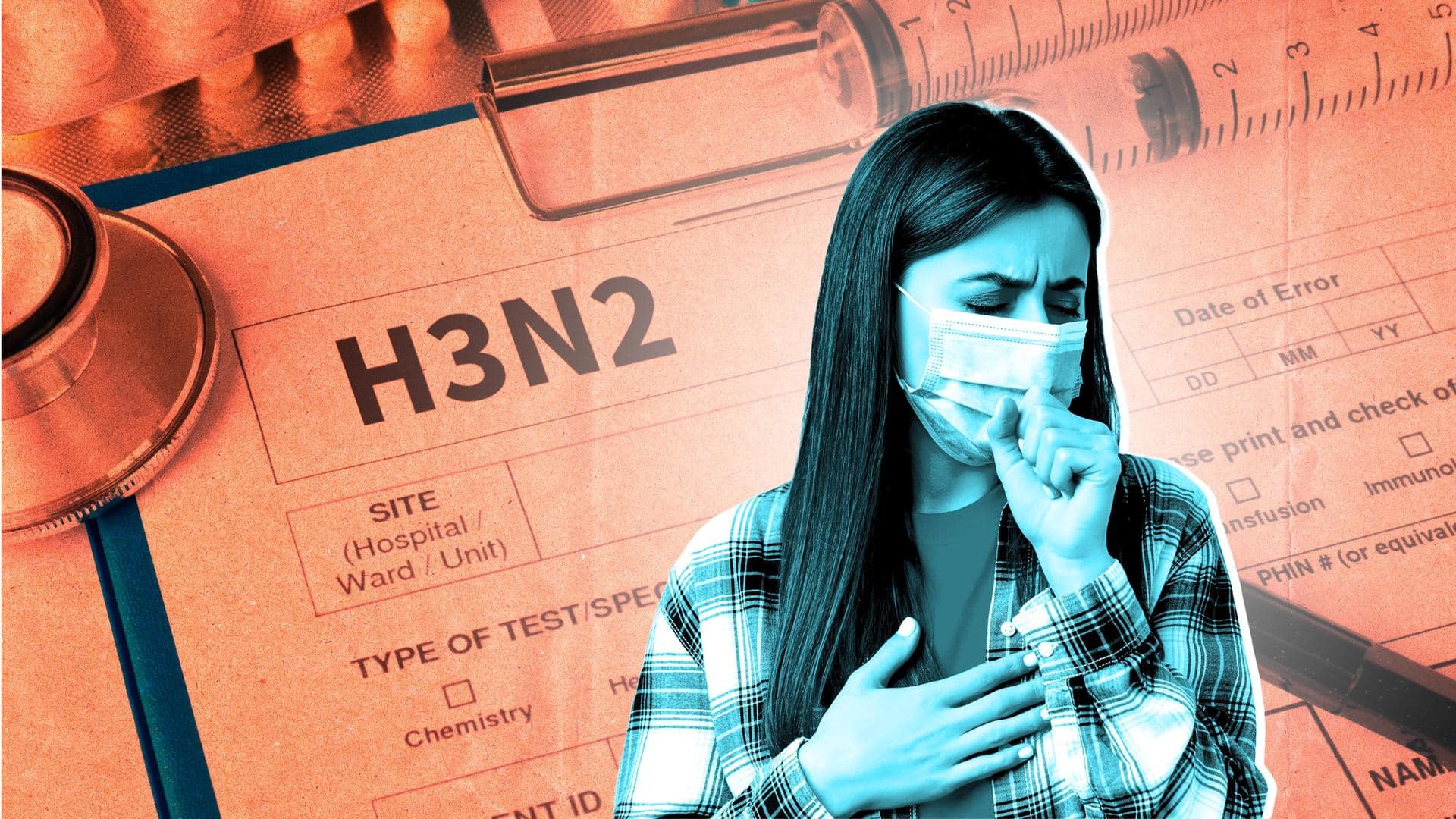
H3N2: Experts advise caution as deaths and ICU admissions rise
What's the story
Amid the continuous rise in H3N2 cases and deaths linked to the virus in India, experts have issued an alert for people to follow COVID-19-like precautions and mask up to prevent the spread of respiratory illnesses. They also advised people against spreading panic over the issue. Meanwhile, several states have enhanced health facilities as admissions to Intensive Care Units (ICUs) witnessed a spurt.
Context
Why does this story matter?
Over the last two or three months, India has seen an unexpected increase in influenza cases. The infection can cause a 3-5 day fever and cough and cold that can last for three weeks. While the disease is typically mild, it can become severe in vulnerable groups. This has triggered fear among the general public two years after the onset of the COVID-19 pandemic.
Details
2 more suspected H3N2-linked deaths reported in India
According to reports, two more suspected deaths due to the H3N2 virus have been reported in India. A 58-year-old Gujarat woman died due to flu-like symptoms at a state-run hospital in Vadodara city. On Tuesday, Maharashtra reported its first suspected death due to the H3N2 virus after an MBBS student from Ahmednagar died after testing positive for both COVID-19 and H3N2.
ICU cases
ICU admissions due to respiratory illness rise in several states
Health officials also reported an increase in ICU admissions of the elderly and children in several states, including Maharashtra, Delhi, Rajasthan, and West Bengal, as a result of H3N2. According to them, multiple ICU incidents involving children under the age of five have been reported in Pune. Similarly, Delhi and Rajasthan are seeing an increase in ICU admissions involving children and the elderly.
Action
Schools shut in Puducherry till March 26 as precautionary measure
Due to an increase in H3N2 infections, all schools in Puducherry will be closed for 10 days. "All schools in Puducherry to remain closed from 16th to 26th March in wake of the spread of H3N2 virus", Education Minister A Namassivayam said on Wednesday. He stated that the decision was made in response to reports of kids being ill following the H3N2 virus.
Caution
Do not panic, avoid self-medications: Expert
Speaking to The Indian Express, Dr. Nikhil Modi, Consultant, Respiratory and Critical Care Medicine, Indraprastha Apollo Hospitals, Delhi said, "It is time for resuming COVID-era preventive protocols for we have to increasingly live with evolving viruses." "Also, do not panic and stay away from taking random medication. Follow the doctor's prescription and you should be fine," he added.
Preparation
States gear up to tackle H3N2 case-rise, hospital admissions
Additionally, various state and UT governments began preparing to handle the increase in influenza cases after the H3N2 alert. The Delhi government established isolation units in Lok Nayak Jai Prakash Narayan Hospital (LNJP) for patients with H3N2 virus symptoms who needed admission. Similarly, Uttar Pradesh and Kerala have enhanced ICU facilities and kept isolation beds at top hospitals.
Scenario
451 H3N2 cases reported in two months
According to data shared by the Ministry of Health and Family Welfare, India reported 451 cases of the H3N2 virus cases between January 2 and March 5. Notably, the Indian Council of Medical Research (ICMR) has issued an advisory asking people to avoid self-medication and the use of antibiotics in case of contracting the virus.
Facts
Low-immunity people at high risk of getting H3N2 infection
H3N2 are subtypes of Influenza A and can be serious for those who have low immunity or multiple comorbidities. According to doctors, patients suffering from Influenza A virus subtype H3N2 mostly complained of sore throat, cough, body ache, and runny nose. They said as the virus mutates, the immunity against it gets reduced. ICMR also recommended vaccination for vulnerable groups earlier.
About
What to do to prevent infection spread?
To avoid H3N2 infection, people should wash their hands often with soap. If someone in the house has a fever, cold, or cough, they should maintain distance. One should avoid touching their nose and mouth, cover their mouth while coughing and sneezing, and use masks in crowded areas. In case of an infection, people should only take medicines on the advice of a doctor.